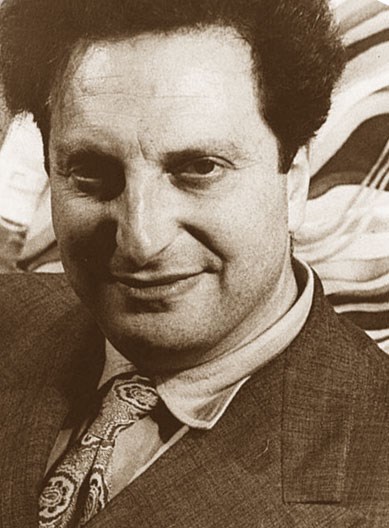
Evaluation Carlo Levi
Carlo Levi Valuations - Want to sell a Carlo Levi piece? Request a complimentary and confidential valuation!Colasanti Casa d'Aste will review your submission and offer a free-of-charge estimate, if your item is suitable for our auctions.
biography
Carlo Levi, born in Turin on November 29, 1902, and died in Rome on January 4, 1975, was one of the most important Italian intellectuals of the 20th century, renowned as a writer, painter, and anti-fascist. Coming from an upper-class Jewish family in Turin, Levi was shaped by a stimulating cultural and political environment, also thanks to his family connection with Claudio Treves, a leading figure in Italian socialism. After attending the Alfieri high school, he graduated in medicine from the University of Turin, but his passion for painting and literature soon led him to dedicate himself to art and civic engagement.
Levi was an active opponent of the Fascist regime: arrested and exiled to Basilicata between 1935 and 1936, he lived in Grassano and then in Aliano, an experience that profoundly marked his life and work. During his exile, he practiced medicine and confronted the backward and underdeveloped reality of southern Italy, themes he later addressed in his famous book Cristo si è fermato a Eboli (Christ Stopped at Eboli), published in 1945 and considered a classic of Italian literature. This work made him one of the leading voices on the Southern Question and earned him international recognition.
Alongside his literary career, Carlo Levi successfully cultivated painting, developing an original style that blends realism with symbolic suggestions. Levi was also active in postwar politics, elected as a Senator of the Republic and committed to defending civil rights. His figure remains a fundamental reference point for 20th-century Italian culture.
Levi was an active opponent of the Fascist regime: arrested and exiled to Basilicata between 1935 and 1936, he lived in Grassano and then in Aliano, an experience that profoundly marked his life and work. During his exile, he practiced medicine and confronted the backward and underdeveloped reality of southern Italy, themes he later addressed in his famous book Cristo si è fermato a Eboli (Christ Stopped at Eboli), published in 1945 and considered a classic of Italian literature. This work made him one of the leading voices on the Southern Question and earned him international recognition.
Alongside his literary career, Carlo Levi successfully cultivated painting, developing an original style that blends realism with symbolic suggestions. Levi was also active in postwar politics, elected as a Senator of the Republic and committed to defending civil rights. His figure remains a fundamental reference point for 20th-century Italian culture.





